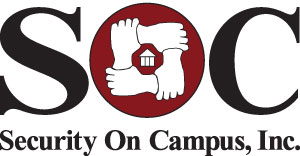Catching Up With the Clery Act

|
Alison Kiss is the Executive Director at Security on Campus, the organization co-founded in 1987 by Connie and Howard Clery, following the rape and murder of their daughter Jeanne at Lehigh University. The result of their effort is The Jeanne Clery Disclosure of Campus Security Policy and Campus Crime Statistics Act, which requires institutions of higher education to release campus crime statistics and security policies to their current and prospective students and employees.
Now in its 25th year, Security on Campus’ new leader has some innovative plans that will not only help universities, but will benefit leaders in other sectors.
This is perhaps the single, most transparency creating law in security’s history. It has required hiring, funding and reorganization at the university level in an unparalleled manner. Neither 911, Katrina nor Sarbanes Oxley have had as much of an impact on individual organizations as Clery has had on its market. At the core of the law is money: All institutions that receive federal Department of Education funding, must report under Clery.
Kiss worked at Security on Campus from 2004 through 2009 where she was instrumental in the development and implementation of curricula for the Safe On Campus Peer Education Program and for the Victim Support Services Module of the Clery Act Training Program. She left to earn her Masters of Science in Criminal Justice from Saint Joseph’s University. She has now returned to the organization as Executive Director. As she begins her second year, we had the opportunity to discuss this important organization.
Security: What will we see in the near future from Security on Campus?
Kiss: We will be bringing our name, Security on Campus together with the better known Clery name to improve recognition. To do this, we will be rebranding as The Clery Foundation’s Security on Campus. We will be launching a new website and training programs, as well.
Security: Tell us about your new website.
Kiss: The most important addition is online technical assistance for colleges and universities seeking to understand the Clery Act and achieve compliance. This will be a powerful new tool for the market. There are different training and consulting programs that interpret the law differently and give different information to schools regarding compliance. The online tool will help universities and colleges get clarity.
Security: And what new training programs are you adding?
Kiss: Our new programs are a reflection of what the universities are asking for: A system-wide program. To explain, we used to see one compliance manager attend our program representing a university system with multiple campuses. And that compliance person would go back and try to implement Clery across these campuses. The results were not always positive. Now we are getting requests for programs focusing on compliance and continuity. So representatives from each campus are being trained and charged with implementing a successful on campus program. Our new system-wide programs meet this need.
Security: Both your online tool and system-wide training program are designed to help organizations understand and comply with the Act. Is this law challenging to understand?
Kiss: It can be. There is a challenge for organizations to balance adhering to the “letter of the law” versus “the spirit of the law.” For example, what counts in terms of Clery geography is an issue. If there is a bridge on campus leading to a park, what falls under Clery? Where do you or do you not report an incident as “on campus?”
So, we try to smooth out the multiple interpretations of the law. One of our longer term goals is to simplify the Act by working with Congress.
Security: What are your interests outside of work?
Kiss: I am an avid distance runner and a volunteer on the Board of Directors for the Kristin Mitchell Foundation, which assists with communications for the Preeclampsia Foundation.
Looking for a reprint of this article?
From high-res PDFs to custom plaques, order your copy today!






